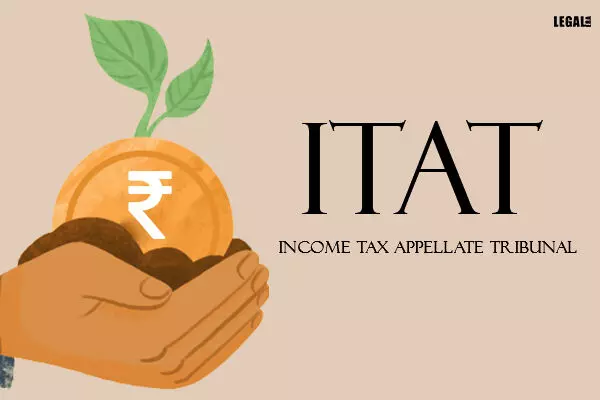- Home
- News
- Articles+
- Aerospace
- Agriculture
- Alternate Dispute Resolution
- Banking and Finance
- Bankruptcy
- Book Review
- Bribery & Corruption
- Commercial Litigation
- Competition Law
- Conference Reports
- Consumer Products
- Contract
- Corporate Governance
- Corporate Law
- Covid-19
- Cryptocurrency
- Cybersecurity
- Data Protection
- Defence
- Digital Economy
- E-commerce
- Employment Law
- Energy and Natural Resources
- Entertainment and Sports Law
- Environmental Law
- FDI
- Food and Beverage
- Health Care
- IBC Diaries
- Insurance Law
- Intellectual Property
- International Law
- Know the Law
- Labour Laws
- Litigation
- Litigation Funding
- Manufacturing
- Mergers & Acquisitions
- NFTs
- Privacy
- Private Equity
- Project Finance
- Real Estate
- Risk and Compliance
- Technology Media and Telecom
- Tributes
- Zoom In
- Take On Board
- In Focus
- Law & Policy and Regulation
- IP & Tech Era
- Viewpoint
- Arbitration & Mediation
- Tax
- Student Corner
- AI
- ESG
- Gaming
- Inclusion & Diversity
- Law Firms
- In-House
- Rankings
- E-Magazine
- Legal Era TV
- Events
- News
- Articles
- Aerospace
- Agriculture
- Alternate Dispute Resolution
- Banking and Finance
- Bankruptcy
- Book Review
- Bribery & Corruption
- Commercial Litigation
- Competition Law
- Conference Reports
- Consumer Products
- Contract
- Corporate Governance
- Corporate Law
- Covid-19
- Cryptocurrency
- Cybersecurity
- Data Protection
- Defence
- Digital Economy
- E-commerce
- Employment Law
- Energy and Natural Resources
- Entertainment and Sports Law
- Environmental Law
- FDI
- Food and Beverage
- Health Care
- IBC Diaries
- Insurance Law
- Intellectual Property
- International Law
- Know the Law
- Labour Laws
- Litigation
- Litigation Funding
- Manufacturing
- Mergers & Acquisitions
- NFTs
- Privacy
- Private Equity
- Project Finance
- Real Estate
- Risk and Compliance
- Technology Media and Telecom
- Tributes
- Zoom In
- Take On Board
- In Focus
- Law & Policy and Regulation
- IP & Tech Era
- Viewpoint
- Arbitration & Mediation
- Tax
- Student Corner
- AI
- ESG
- Gaming
- Inclusion & Diversity
- Law Firms
- In-House
- Rankings
- E-Magazine
- Legal Era TV
- Events
Interest received by a bank post liquidation not taxable under DIGCI Act: ITAT

Interest received by a bank post liquidation not taxable under DIGCI Act: ITAT
The revenue department wrongfully assessed the income from other sources
The Ahmedabad Bench of the Income Tax Appellate Tribunal (ITAT) has held that the interest received by the bank post liquidation cannot be taxed if it is diverted at source as per the provision of the Deposit, Insurance and Credit Guarantee Corporation of India (DICGCI) Act.
The revenue department challenged the separate orders of March 2020 passed by the Commissioner of Income Tax (Appeals), as against the assessment orders passed under the Income Tax Act, for the Assessment Year 2013-14.
The assessee, General Co-operative Bank is under liquidation by an order passed by the Government of Gujarat. The banking business of the assessee was suspended by the Reserve Bank of India (RBI).
The assessment made by the assessing officer (AO) was revised on the ground that the assessee being in liquidation, the interest income was assessable as 'Income from other sources.' This was done citing the Gujarat High Court judgment in the case of Morvi Mercantile Bank Ltd.
The Principal Commissioner of Income Tax held that as the banking license of the assessee was suspended, it could not claim any loss on the realization of the nonbanking assets and unabsorbed depreciation.
The AO passed the assessment order by making disallowance of loss on realization of non-banking assets and unabsorbed depreciation. He added the income of Rs.2,90,00,183 under 'Income from other sources.'
However, the CIT(A) deleted the addition made by the AO. It was observed that as per the mandatory conditions under the DICGCI Act, all funds realized by the bank under liquidation was diverted at the source till the liability of DICGCI were paid fully.
The Coram of T.R. Senthil Kumar (judicial member) and Annapurna Gupta (accountant member) rejected the appeals filed by the revenue department. It held that the entire income of the assessee, including the interest income and share dividend income, was diverted at the source. The bank under liquidation had no discretion or authority to apply for such funds, as the income was not taxable in the hands of the assessee.



